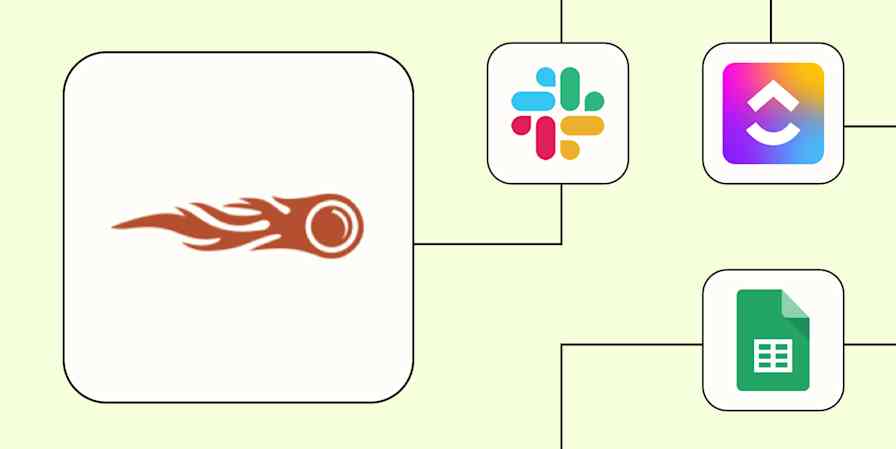Backlinks are an important part of any SEO strategy, but they're not a set-it-and-forget-it kind of win. Backlinks can disappear, become toxic, or just become less relevant as time goes by. That means you have to continue to find new backlink opportunities to keep your search ranking high.
I spend all my working hours thinking about SEO and helping people improve theirs, so I've learned a lot of creative strategies for getting backlinks. Here are the seven I recommend the most.
1. Replicate your competitors' SEO backlinks
Figuring out who's linking to your competitors is a huge win. Competitor backlinks will almost certainly be on sites that are relevant to your niche, so you know they'd be quality backlinks for SEO.
This could be a massive manual project, but there are tools (free and paid) that help you analyze the backlink profiles of your competitors. I'll use my free tool, Online Backlink Checker (part of Link-Assistant.com), as an example, but the process would be pretty similar for any other software.
All you need to do is open the tool, enter the competitor's URL, and click Check backlinks. The tool will audit the domain and generate a backlink profile, including the number of backlinks, the percent of dofollow backlinks, and historical data. Here's what that might look like.

Scroll down, and you'll see the actual list of backlinks. To get the most powerful prospects, you can filter the results by Page InLink Rank and Dofollow.

Take a look through the backlink pages, pick the most powerful opportunities, and then reach out to those sites to see if they'd be willing to link to your site. Just one thing: before you reach out, check to see if you already have a backlink from those providers—if you do, acknowledge that before asking for another.
2. Use the broken link building strategy
Broken link building is the process of finding backlinks that lead to 404 pages on other sites, contacting those sites, and suggesting they replace the 404 link with the one leading to a similar page on your website. It's a great way to get backlinks while also offering value to the site giving you the backlink.
There are two primary ways to find these broken backlinks:
Find broken backlinks from your competitors
You can use a backlink analysis tool (mine is called SEO SpyGlass) to do this kind of analysis. You'll be able to filter results to find high-authority dofollow backlinks that are throwing a 404 error.

These backlink providers are now your prospects. Visit the page the broken link comes from, see if you have a relevant page to replace it with, and if so, reach out to suggest the replacement. If it truly is relevant, they might use your link because it helps them eliminate a 404 without having to take the time to find a good replacement.
Analyze the website you want backlinks from
If there's a specific site you want backlinks from, you can analyze it to see if it has any relevant broken links. In my tool, WebSite Auditor, this information is presented in the Site Structure > Site Audit > Links > Broken links module.

Once again, if you have a relevant replacement, offer it up to the site owner. If you think it would be a valuable enough backlink, you could even create new content that you then offer them—but keep in mind that there's no guarantee the effort you put in will be rewarded.
One last thing: be transparent with the people you're reaching out to. Don't make it sound like you're just trying to help them—be clear that the link you're suggesting they use is from your website, and that you think it would be a relevant replacement. The person making the decision is a real human who will see right through you if you try to hide that.
3. Try to regain missing backlinks
In addition to getting new backlinks, it's also worth spending time figuring out which of your previous backlinks are broken or have gone missing. In SEO SpyGlass, you'd go to Backlink profile > Backlinks and update the Backlink Page Info for your website.

The tool will recrawl the selected pages and tell you if some links got lost.

If you're using Ahrefs, another great tool, you can view the site's lost backlinks under Site Explorer > Backlink Profile > Backlinks > Lost:

There are plenty of reasons your links may have disappeared:
The link may have been replaced by the site owner (link is missing).
The backlink page may be gone (page not found).
The website may be down at the moment (site is down).
The page may be restricted from indexing.
To restore a missing backlink, you'll need to contact the site owners and ask them for assistance. Depending on what the problem is, you might ask them to place your link on another page if the previous one has been removed, restore the backlink if it was deleted, or remove the noindex directives from their pages.
4. Build links with images
Images grab attention and take up space, so it makes sense that people click on them. This is why it's worth creating images (infographics, graphics, product photos, comics, you name it) and promoting them to attract more backlinks.
But if you use images as backlinks, you want to be sure that the link points to the broader page the image lives on, not to the image directory. Image directory links (ending in .gif, .png, .jpg, etc.) are dead-end: all the traffic that goes there is just wasted.
To see if any of your backlinks lead to image directories, set up filters in your SEO tool to see if any target URLs contain images formats.

If you find any, ask the site owner to replace the link with the one that leads to the page with the image. If you're letting them embed your image on their site, they should be ok linking to the right place.
In fact, you can even do a Google Images search to see if anyone is using your images. If the site is credible and you're ok with them keeping it there, you can ask them to add a link. (If it's a sketchy site, it's worth asking them to take it down.)
5. Write guest posts
Guest posting will boost your credibility and get your brand in front of a new audience, but if you can include a link to your website within the content, it's also a great SEO strategy. Take a look at this article on how to guest post for SEO for more details about how to find the right opportunities and get your guest posts published.
6. Get on "best of" lists
Getting on "best of" lists is of course a great validation of your product or service, but it also puts a link to your site on a relevant, authoritative site.
To find the lists you might be a fit for, use a tool like Online Backlink Checker to check a competitor's website, and pay special attention to the dofollow backlinks that contain phrases like "best" and "top."

You can contact the writer or site owner and ask about the process of getting added to the list. Sometimes it's paid placement, and other times it's up to editorial discretion, but sometimes if you provide them with a convincing blurb, they might put you on there to keep their content fresh.
7. Connect with other industry experts
Engaging with other people in your industry—whether that's through events, social media, or other networking—can help get your site and content in front of more people who might end up linking back to you.
For example, consider joining some relevant Facebook Groups: start conversations, join discussions, and share your relevant links. Don't overdo it; otherwise, you may (accurately!) come off as spammy. The goal here is to share information you think will be helpful for the people in the community. They can choose to do with it what they want—and if you're lucky, they might want to link to you.
If you join an online community, pay attention to what other community members post. If someone says they're going to write a blog post about a topic related to your business, offer to chat with them and see what might come from it.
There's no one winning strategy to rule your backlink profile. Try each of these options to make your profile diverse, credible, and trustworthy.
This was a guest post from Aleh Barysevich, Founder and Chief Marketing Officer at companies behind SEO PowerSuite, professional software for full-cycle SEO campaigns, and Awario, a social media monitoring app. He is a seasoned SEO and social media expert and speaker at major industry conferences, including 2018's SMX London, BrightonSEO, and SMX East. Want to see your work on the Zapier Blog? Check out our guidelines and get in touch.









